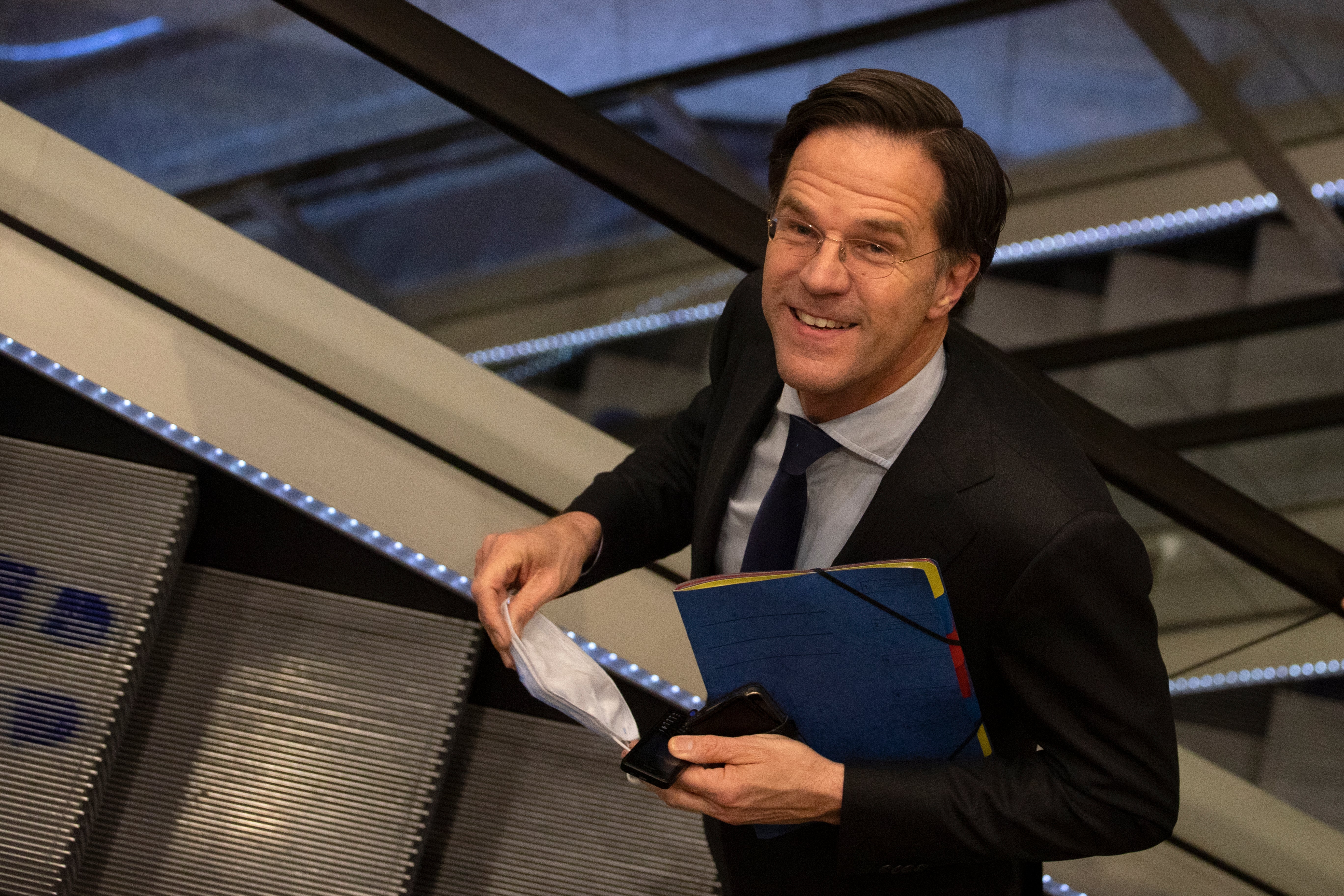Dutch coalition to present plans after completion of talks
The leaders of four political parties set to join forces in the next Dutch ruling coalition have put the finishing touches to a policy blueprint for the next parliamentary term

Your support helps us to tell the story
From reproductive rights to climate change to Big Tech, The Independent is on the ground when the story is developing. Whether it's investigating the financials of Elon Musk's pro-Trump PAC or producing our latest documentary, 'The A Word', which shines a light on the American women fighting for reproductive rights, we know how important it is to parse out the facts from the messaging.
At such a critical moment in US history, we need reporters on the ground. Your donation allows us to keep sending journalists to speak to both sides of the story.
The Independent is trusted by Americans across the entire political spectrum. And unlike many other quality news outlets, we choose not to lock Americans out of our reporting and analysis with paywalls. We believe quality journalism should be available to everyone, paid for by those who can afford it.
Your support makes all the difference.The leaders of four political parties set to join forces in the next Dutch ruling coalition put the finishing touches Wednesday to a policy blueprint for the next parliamentary term, signaling the beginning of the end of a drawn-out process to form a new government.
The parties, led by caretaker Prime Minister Mark Rutte s conservative People's Party for Freedom and Democracy, planned to unveil their plans in the early afternoon.
Rutte, who has led three coalitions, will take charge of his fourth, and he's set to become the Netherlands' longest serving leader despite narrowly surviving a no-confidence motion in parliament in April.
His fourth Cabinet will be made up of the same parties as his third. Rutte's party is joined by the pro-European D66, the center-right Christian Democratic Appeal and centrist Christian Union. Together, they command a narrow majority in the 150-seat lower house of Dutch parliament, but are in the minority in the upper house.
Rutte’s previous administration resigned in January to take political responsibility for a scandal involving the country’s tax department wrongly labelling as fraudsters thousands of parents claiming child benefits.
That and other political scandals in recent years have eroded public confidence in the Dutch government. Rebuilding trust in his administration will be one of Rutte's key tasks as he embarks on a new term in office next year.
Following a parliamentary debate on the coalition accord, Rutte is expected to be appointed to oversee the allocation of Cabinet portfolios. That process will likely last until early next year when the new government can be formally installed.
The presentation of the deal comes just under nine months after the country's March 17 general election, making the coalition talks the longest in Dutch history. But they were still well short of the record set in neighboring Belgium In December 2011, Belgium cobbled together a government after 541 days of negotiations.